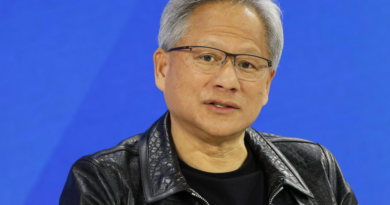Exclusive: 29-year-old self-made millionaire Lucy Guo follows up her unicorn Scale AI with a $40 million Series A for new creator economy venture, Passes
Lucy Guo is already a self-made millionaire who can put the cofounding of a bona fide unicorn, the $7 billion–valued Scale AI, on her resume. Now the 29-year-old entrepreneur has talked exclusively to Fortune about a $40 million Series A funding for her latest initiative, a creator monetization platform called Passes.
Passes previously raised $9 million in seed funding in 2022, led by Austin-based cryptocurrency and blockchain investor Multicoin Capital. That round included participation from Paris Hilton’s 11:11 Media, Jake Paul’s Anti Fund, and Eventbrite cofounder Kevin Hartz.
San Francisco–based Bond, run by Kleiner Perkins alums Mary Meeker and Mood Rowghani, led the round. Bond previously made an early investment in Humane, the startup behind the buzzy, wearable AI pin. The fund also made late-stage investments in Canva, Epic Games, DoorDash, and Uber. Guo plans to use the funding to expand the Passes team—currently at 15 people.
The Series A brought in participation from big names in tech and media, including Skims co-founders Emma and Jens Grede, and Crossbeam Ventures, the fund by Creative Arts Agency co-founder and former Disney president Michael Ovitz. She declined to disclose the company’s valuation.
Here’s what is so attracting major players from the Valley to Passes.
What does Passes do?
The Passes social platform helps content creators diversify their revenue streams by earning money directly from their audiences. Influencers with 100,000 followers across social platforms can use Passes to post exclusive content to paying subscribers, message fans, livestream, host one-on-one calls, and earn tips.
“I believe creators are small businesses, and it’s Passes’ goal to turn them into large businesses,” Guo told Fortune.
Social media creators typically earn money when companies pay them to advertise specific products to their audiences. But relying on brand deals leaves influencers with inconsistent income that depends on what companies want to work with them and when. As a result, their income can vary by thousands of dollars each month. Those who make money off social media are also at the whim of big platforms and their constantly changing algorithms, forcing them to adapt to what’s popular at the time. In an effort to diversify wages and receive more consistent payment, creators have turned to third party platforms like Passes in recent years.
While Passes functions similarly to platforms like Patreon and Fanfix, it offers additional features like screenshot blocking technology and automated sales messages to fans who take specific actions on a creator’s account. Guo plans to integrate AI technology into the platform to streamline some of these sales features, she told Fortune.
An entrepreneur since she sold Pokémon cards in elementary school
Guo has been technology- and business-minded since early elementary school, when she sold Pokémon cards to friends and taught herself how to code. Early in her career, she worked as a product designer for Snapchat and Quora. In 2016, she co-founded Scale AI, the $7.3 billion startup that provides training data to companies building AI models like OpenAI, Meta, and Microsoft. Guo left the company in 2018 and started her own venture capital fund Backend Ventures the next year. At the fund, she made early-stage investments in a series of unicorns, including fintech company Ramp, e-commerce platform Fabric, and compensation software company Pave. While she still works as a general partner at the fund, she has shifted her focus to growing Passes.
Passes
Passes supports 900 creators and 500,000 fans, Guo told Fortune. Some of its most popular users include America’s Got Talent runner-up and magician Anna DeGuzman, workout influencer Alysia Magen, and relationships therapist Jeff Guenther. The top 10 creators on Passes are on track to earn more than $1 million this year, Guo said. The company earns money by charging 10% plus a 30-cent transaction fee on each payment. Guo would not disclose Passes’ revenue.
“A lot of my friends are creators—they’re musicians, they’re TikTokers—and I saw the problems with the creator economy and thought I want to help solve them,” Guo said. “I initially got my friends on board, word of mouth happened, and it’s been going since.”
Big social media platforms have sought to address similar creator frustrations in recent years. Instagram allows users to send monetary gifts to creators, though it is unclear how lucrative the payments are. TikTok launched and then sunset its $2 billion Creator Fund that paid influencers for viral videos, and the company is now only paying for videos longer than 60 seconds. Creators previously told Fortune the original Creator Fund paid so little it didn’t offer enough incentive to keep making content on the platform, and the strategy shift on TikTok’s part forced them to change how they make content.


